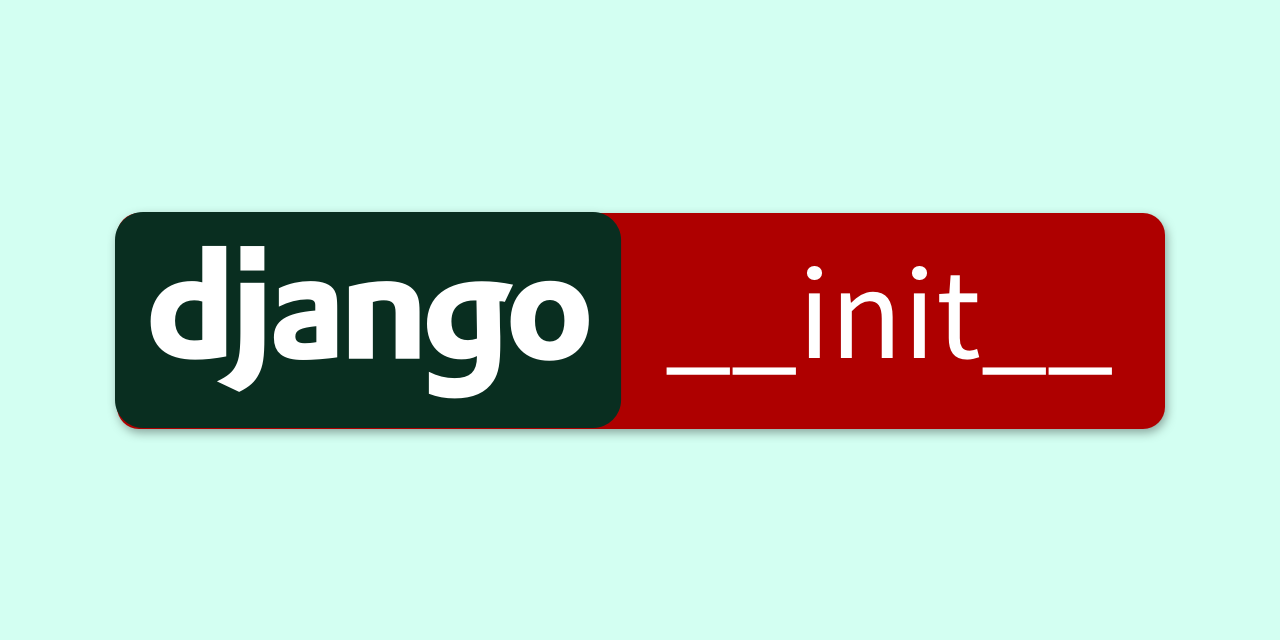django-init is a project boilerplate for Django based projects.
- Django 4.1.x
- Python 3.9.x
- Poetry Support
- Support for black!
- 12-Factor based settings management via django-environ, reads settings from
.envif present. - Supports PostreSQL 13.0 (support of postgis-3.0 is available).
- Django Rest Framework 3.13.x.
- Uses
django_sitesinstead ofdjango.contrib.sites. - Uses mkdocs for project documentation. Optionally, password protect the docs when deployed via Ansible
- Uses pytest as test runner.
- Github Actions
- Custom
Userapp, for easier extensibility. - Custom
Authapp with JWT based Token Backend system withlogin,logoutandcurrent_user_profilemodification views for easier extensibility. - robots.txt and humans.txt configured.
- Heroku Setup
- Fly Setup
- Ubuntu 20 LTS via Ansible
- Celery with flower integration.
- AWS S3 media storage
- Letsencrypt Support via certbot.
- Postgis Setup
- Newrelic
- Sentry
- GraphQL support via Graphene-Django (Optional)
- pre-commit hooks
Install cookiecutter with brew install cookiecutter or pip install cookiecutter.
cookiecutter gh:Fueled/django-init
It will ask you couple of questions required to generate the project. It will generate a folder containing all the files in your current working directory.
If you opt to setup the project automatically, it will also:
- initialize a git repo and bump initial tag and version.
- create a virtualenv in the folder
venvinside the project. - install all the python dependencies inside it.
- create
poetry.lockfile after resolving dependencies and then generaterequirements.txtandrequirements_dev.txtfor production and dev use respectively, for backward-compatibility. - create a postgres database and run the initial migration against it.
then only thing you'll need to do is:
cdinto the newgithub_repositoryfolder just created.- Run
make runor activate virtualenv withpoetry shelland run./manage.py runserver
Don't forget to carefully look at the generated README. Awesome, right?
You can also explore the wiki section for details on advance setup and usages.
To guarantee repeatable installations, all project dependencies are managed using Poetry. The project’s direct dependencies are listed in pyproject.toml.
Running poetry lock generates poetry.lock which has all versions pinned.
You can install Poetry by using pip install --pre poetry or by following the official installation guide here.
Tip: We recommend that you use this workflow and keep pyproject.toml as well as poetry.lock under version control to make sure all computers and environments run exactly the same code.
For compatibility, requirements.txt and requirements_dev.txt can be updated by running
poetry export -f requirements.txt -o requirements.txt
poetry export -f requirements.txt -o requirements_dev.txt --with devor
make generate_requirementsdjango-init is a rolling release project. Commit and fixes are added to master branch on regular basis and always have latest stable django and associated libraries. You are advised to follow-up with changelogs.
Refer to HISTORY.md.
Everyone interacting in the django-init project's codebase, issue trackers, chat rooms, and mailing lists is expected to follow the PyPA Code of Conduct.
- https://github.com/pydanny/cookiecutter-django
- https://github.com/wemake-services/wemake-django-template
- https://github.com/lionheart/django-template
Built with ♥ at Fueled

